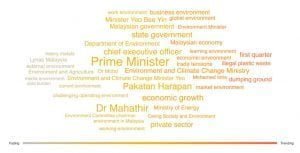There has already been a lot written about the recent election in Australia, “the unwinnable election” for the Liberal-National Coalition and the “unlosable election” for the Labor opposition. So why is it that after a shocking “defeat” the leader of Labor party has resigned and the Prime Minister Scott Morrison or ScoMo, as many people call him, looks stronger than ever as he powers Australia out of a decade of chop and change leadership at the top?
If you ask the polling companies and to book-makers they will tell you it was a once in a lifetime event, if you ask a data scientist with access to social media listening tools, they will tell you it makes complete sense.

There is a direct relationship between data, a given community, the content that they consume and the reputation of a person within that continuum. In the case of Australia, opinion polls which have a margin of error greater than the potential swing of voter behavior are at best a blunt knife compared to the sharpness of social media data.
What can Malaysian leaders and aspiring members of parliament learn from the recent Australian election.
- Avoid misreading the importance of environment over jobs
- Avoid misreading speaking out on issues that are not within your scope of influence
- Understand that the impact of local issues on voters in a given electorate or state are greater than national issues
- Be very clear on the amount of votes needed to change a given seat, winning large amounts of popular vote doesn’t win elections, winning seats wins elections.
The data shows that the environment is an important issue but it’s not the golden issue, many leaders have forgotten basic human nature when viewed through the lens of Maslow’s Hierarchy of Needs, so it’s jobs first and in the current economy not everyone has jobs and environment second, especially at the grassroots levels in rural areas. It just so happens that these rural voters be it in Malaysia or Australia are key in determining the outcome of any election.
Once people have been given the emotional permission through 3rd party scientist they will turn their attention to the economic benefits that a project or industry will bring to them, this is especially true when the risks are perceived as low to very low.

With that in mind there are a few politicians in Malaysia that are banking the political fortunes on the data provided by old world data companies, opinion polls are static, they only ask a sample of the population, it might be good data but it’s not a sharp enough tool to for policy makers in the day and age. In contrast, social listening tools pick up everything that people are talking about online and distill that data in a way that is easy to read. This makes decision making a lot easier because at the end of the day you are listening to what people are saying.
Fair weather issues like plastics and the environment might get you recognized by European based NGO’s, as a leader and it fills up your resume but its not going to get you elected especially if you have closed down factories that employ real people who need to pay their real electricity bill at the end of the month. But that could just be the data speaking.
Chau Yen Loong is the Co-Founder of Harvestmedia a leading digital analyst firm based in Kuala Lumpur.
